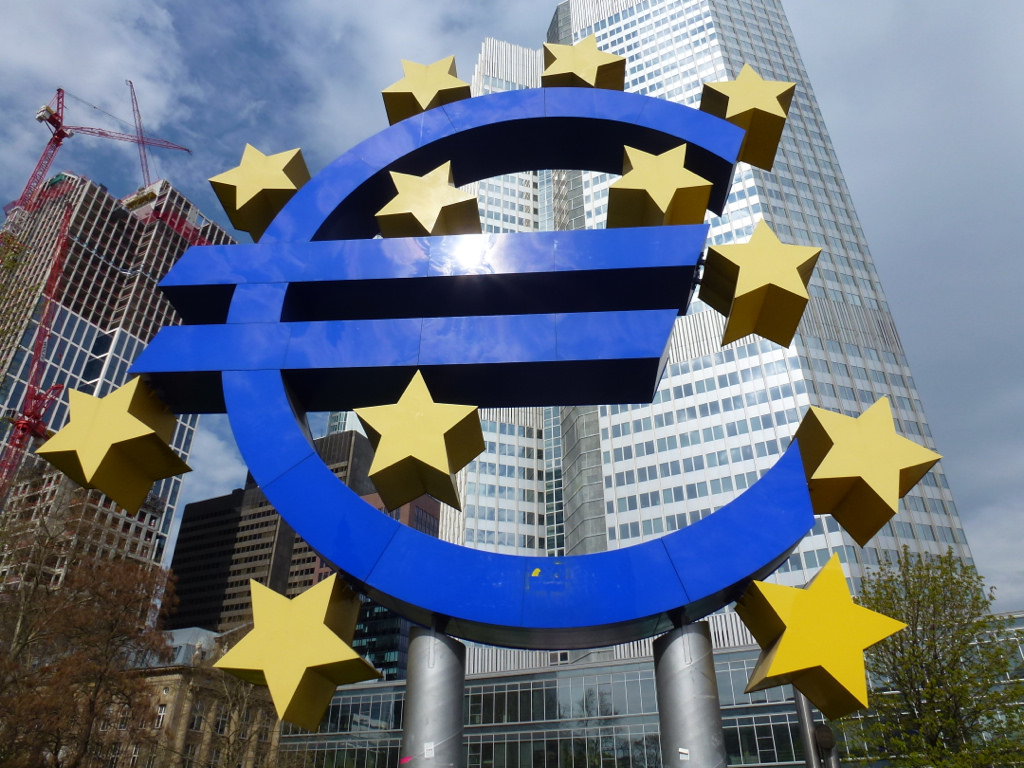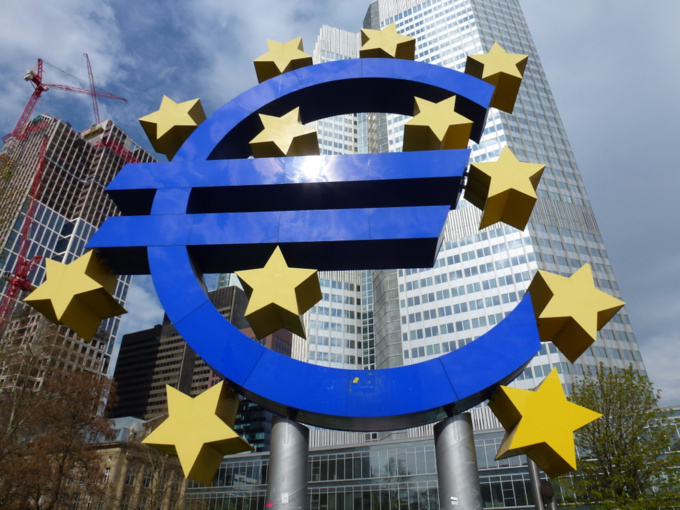Italy has practically lost support of its banking sector on the part of the regulator. The European Central Bank is gradually reducing the program of quantitative easing, and plans to complete it by the end of the year.
This means that the Central Bank will not buy Italian bonds, that is, the country will lose its creditor of last resort.
The only way out is to accept conditions of the so-called bail-out mechanism, but then it will be necessary to adopt measures of tough economy that Brussels will offer. We know about them thanks to the crisis in Greece.
This is really draconian measures, that is, in fact, the country falls under foreign economic occupation.
It is very likely that Europe is returning back to 2011, when the debt crisis broke out. Only this time the ECB will no longer run QE, but will turn it off instead. Thus, any country, in fact, can lose access to capital markets, and then become bankrupt.
In fact, the Italian economic is doing quite well, even in comparison with the countries of Central Europe. The main problem is the single European currency.
According to the estimates of the Bank for International Settlements, the total debt reaches 263% of the country's GDP and it is lower than 290% in the Netherlands, 303% in France, 321% in Portugal and 338% in Belgium.
Italians have more financial wealth per capita than even the Germans. There are about € 1 trillion on bank accounts and about $ 3 trillion in liquid assets. The country has a current account surplus of 2.6% of GDP. Italy has a primary budget surplus of 1.7% of GDP and the better recent fiscal track record than France or Spain.
The single European currency has had an extremely destructive impact on the economy, investments and so on. Problems in the debt market are also a consequence of being a member of the euro zone, writes The Telegraph.
If Italy were a sovereign state with its own currency and a central bank, nothing terrible would happen. These markets have become vulnerable only because of the politicized and deformed structure of the monetary union. In reality, market participants are afraid not of Italy's budget problems, but of the fact that the country will be cut off from liquidity in order to teach a political lesson to Eurosceptics.
Recall that the EU Commissioner for Germany Guenther Oettinger caused a furor, saying that the bond markets will teach the Italians "not to vote for right-wing and left-wing populists." And ECB Vice President Vitor Constancio dispelled all doubts, saying in an interview with Spiegel that the central bank will increase pressure on Italy to achieve compliance with EU rules.
The ECB has already said that it does not see any reason to help the Italians, but the regulator can show toughness and stop reinvesting Italian bonds. This, of course, will be a real catastrophe, as the ECB keeps a fifth of the Italian sovereign debt on its balance.
In any case, there are many levers of pressure on Italy, and all of them are destructive. Again, we have already seen all this with Greece. Yet, the end of the Italian story remains unclear.
The ECB will not interfere with the situation in Italy yet
The European Central Bank (ECB) is closely following the markets and the political crisis in Italy, but sees no reason to interfere in the situation at present, sources told Reuters.
Market speculation about possible intervention of the Central Bank in the situation appeared after local political parties repeatedly failed to form a government. In addition, there were rumors about the possible withdrawal of Italy from the euro zone.
But three sources told the agency that the ECB does not consider the possibility of intervention, since most indicators do not show signs of stress in the banking industry, and the central bank does not have the tools or mandate to deal with what is essentially a political crisis.
source: reuters.com, spiegel.de
This means that the Central Bank will not buy Italian bonds, that is, the country will lose its creditor of last resort.
The only way out is to accept conditions of the so-called bail-out mechanism, but then it will be necessary to adopt measures of tough economy that Brussels will offer. We know about them thanks to the crisis in Greece.
This is really draconian measures, that is, in fact, the country falls under foreign economic occupation.
It is very likely that Europe is returning back to 2011, when the debt crisis broke out. Only this time the ECB will no longer run QE, but will turn it off instead. Thus, any country, in fact, can lose access to capital markets, and then become bankrupt.
In fact, the Italian economic is doing quite well, even in comparison with the countries of Central Europe. The main problem is the single European currency.
According to the estimates of the Bank for International Settlements, the total debt reaches 263% of the country's GDP and it is lower than 290% in the Netherlands, 303% in France, 321% in Portugal and 338% in Belgium.
Italians have more financial wealth per capita than even the Germans. There are about € 1 trillion on bank accounts and about $ 3 trillion in liquid assets. The country has a current account surplus of 2.6% of GDP. Italy has a primary budget surplus of 1.7% of GDP and the better recent fiscal track record than France or Spain.
The single European currency has had an extremely destructive impact on the economy, investments and so on. Problems in the debt market are also a consequence of being a member of the euro zone, writes The Telegraph.
If Italy were a sovereign state with its own currency and a central bank, nothing terrible would happen. These markets have become vulnerable only because of the politicized and deformed structure of the monetary union. In reality, market participants are afraid not of Italy's budget problems, but of the fact that the country will be cut off from liquidity in order to teach a political lesson to Eurosceptics.
Recall that the EU Commissioner for Germany Guenther Oettinger caused a furor, saying that the bond markets will teach the Italians "not to vote for right-wing and left-wing populists." And ECB Vice President Vitor Constancio dispelled all doubts, saying in an interview with Spiegel that the central bank will increase pressure on Italy to achieve compliance with EU rules.
The ECB has already said that it does not see any reason to help the Italians, but the regulator can show toughness and stop reinvesting Italian bonds. This, of course, will be a real catastrophe, as the ECB keeps a fifth of the Italian sovereign debt on its balance.
In any case, there are many levers of pressure on Italy, and all of them are destructive. Again, we have already seen all this with Greece. Yet, the end of the Italian story remains unclear.
The ECB will not interfere with the situation in Italy yet
The European Central Bank (ECB) is closely following the markets and the political crisis in Italy, but sees no reason to interfere in the situation at present, sources told Reuters.
Market speculation about possible intervention of the Central Bank in the situation appeared after local political parties repeatedly failed to form a government. In addition, there were rumors about the possible withdrawal of Italy from the euro zone.
But three sources told the agency that the ECB does not consider the possibility of intervention, since most indicators do not show signs of stress in the banking industry, and the central bank does not have the tools or mandate to deal with what is essentially a political crisis.
source: reuters.com, spiegel.de



















